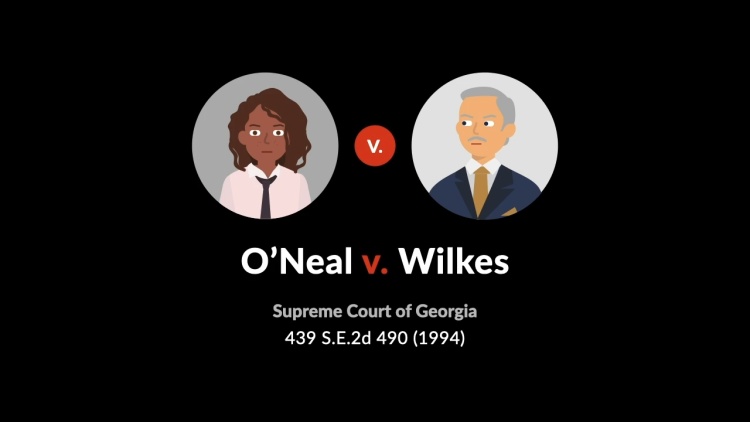O'Neal v. Wilkes
Supreme Court of Georgia
439 S.E.2d 490 (1994)

- Written by Christine Raino, JD
Facts
In 1949, Hattie O’Neal (plaintiff) was born out of wedlock. She was raised by her mother until her mother died in 1957. Her father never claimed her nor recognized her as his daughter. O’Neal spent the next few years living with a maternal relative, who turned her over to a woman interested in adopting her but that woman turned her over to her biological father’s sister, Estelle Page, who then offered O’Neal for adoption to Roswell Cook. Cook raised O’Neal, provided for her until she married in 1975, and considered her his daughter, but never formally adopted her. When Cook died intestate and Firmon Wilkes (defendant), the administrator of Cook’s estate, refused to treat O’Neal as an heir to the estate, O’Neal filed a petition in equity asking the court to recognize a virtual adoption and permit her to inherit from Cook’s estate as though she had been formally adopted. The trial court determined that Page lacked authority to contract for O’Neal’s adoption and granted a judgment notwithstanding the verdict in favor of Wilkes. O’Neal appealed to the Supreme Court of Georgia, asserting that Page had authority to contract for her adoption, or alternatively that her biological relatives’ failure to object to the adoption constituted ratification of the adoption contract.
Rule of Law
Issue
Holding and Reasoning (Fletcher, J.)
Dissent (Sears, J.)
What to do next…
Here's why 907,000 law students have relied on our case briefs:
- Written by law professors and practitioners, not other law students. 47,100 briefs, keyed to 996 casebooks. Top-notch customer support.
- The right amount of information, includes the facts, issues, rule of law, holding and reasoning, and any concurrences and dissents.
- Access in your classes, works on your mobile and tablet. Massive library of related video lessons and high quality multiple-choice questions.
- Easy to use, uniform format for every case brief. Written in plain English, not in legalese. Our briefs summarize and simplify; they don’t just repeat the court’s language.





